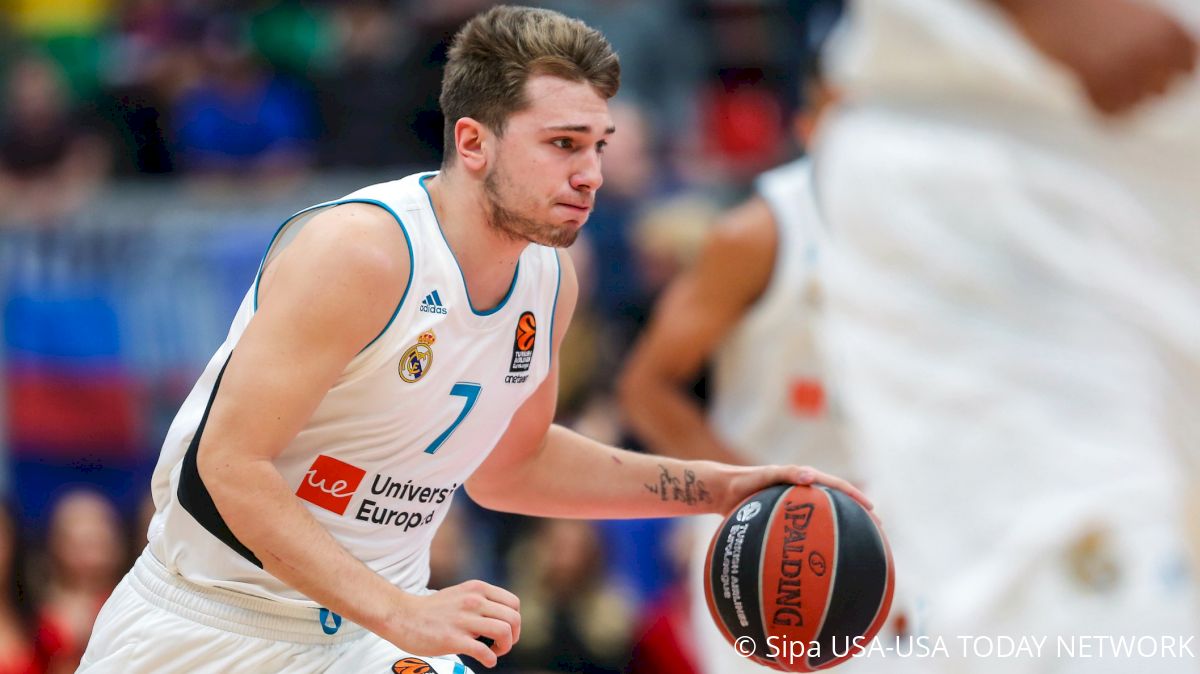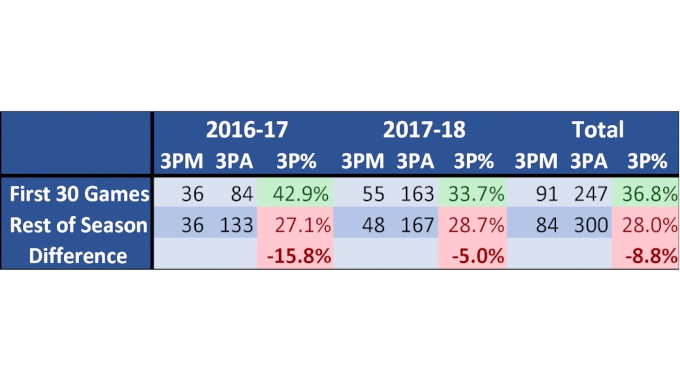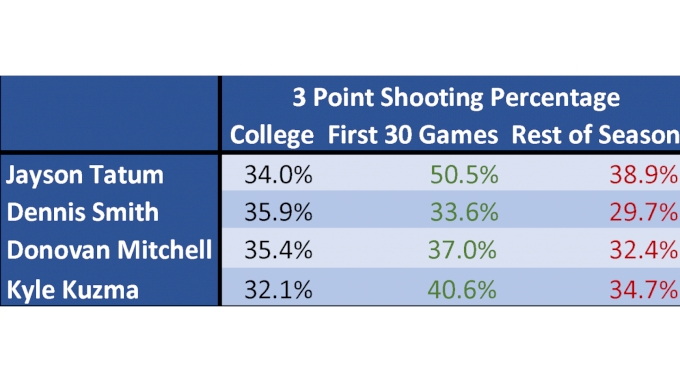NBA Scouts Are Worried About Luka Doncic's Shooting, But Should They Be?
NBA Scouts Are Worried About Luka Doncic's Shooting, But Should They Be?
NBA scouts and fans alike have worried about the shooting abilities of Slovenian superstar Luka Doncic, but the data tells a different story.

There has perhaps never been a more hyped European draft prospect than 19-year old Slovenian superstar Luka Doncic. After leading Real Madrid to a EuroLeague championship while earning MVP and Final Four MVP honors along the way, the youngster convinced many that his accomplishments in the second-best league in the world all but assured him the top overall pick. However, as draft night got closer, criticisms aimed at his athleticism and shooting led him to slip to third, before he was eventually traded to the Dallas Mavericks for the fifth pick (Trae Young) and a future first-round pick.
In the NBA Rookie survey released this week, in which each year’s rookies were asked to forecast the future of their draft class, Luka tied for third place (with nine percent of the vote) for who was most likely to win Rookie of the Year, but in a surprising turn he was snubbed from some of the other main categories, receiving zero votes for most likely to have the best career or be the best shooter.
While this certainly seems like a mistake to anyone who watched Real Madrid this season, some of this oversight can potentially be explained by the lack of access to and media coverage of European prospects. But in 2018, with scouting more widespread than ever and EuroLeague games just a click away — the season will be streamed live right here on FloHoops — it’s also possible that these concerns are very real.
At 6-foot-8 and 230 pounds, Luka certainly has the NBA frame to match up with not only guards but several of the top big men in this year’s draft class (Marvin Bagley III and Jaren Jackson Jr. weighed in at 234 and 236 pounds, respectively). His size and strength regularly allowed him to overpower his European competition, but adjusting to the speed and length of the uber-athletic NBA game may mitigate some of the impact of the court-vision and first-step abilities that make him so successful. Without that athletic edge, many scouts believe he will have to adjust his game, much like Serbian Nikola Jokic has done over the past three years, relying more on the threat of his jump-shot in order to create lanes and passing angles. And while Doncic has shown an ability to create his own shot off the dribble, shooting 31 percent from the shorter three-point line of the ACB and EuroLeague has left room for skepticism, especially amid a draft class featuring the likes of Trae Young, Michael Porter Jr., and Kevin Knox.
However, comparing that 31 percent number to his NCAA counterparts feels unfair without first addressing several aspects of Doncic’s European season that many in the NBA media are overlooking.
First, while shorter than the NBA line, the FIBA three-point line is still about a foot longer than the in NCAA, meaning that Doncic will face less of an adjustment moving the NBA three-point range. Second, and perhaps most importantly, we have the length of the season to consider. While many of the one-and-done players in this year’s draft have spent the past two years playing 30-40 competitive games against other high school and college athletes, Doncic was busy playing 70-80 games per year against fully-developed professional basketball players on teams who have the experience and coaching to integrate complex defensive schemes. After a certain point, the fatigue of a full-length professional season has to wear on the legs of 19-year-old tasked with running Real Madrid’s offense. Using 30 games as the average length of a college season, let’s look at the effect that fatigue has potentially had on Doncic’s shooting over the past two years.

Through the first 30 games of the season, Doncic was a 37-percent three-point shooter while running the offense in a professional league, creating his own shot of the dribble, and shooting from a farther three-point line! This number is certainly comparable to some of the best 2018 lottery picks who have similar sample sizes through 30 games: Trae Young at 36.1 percent, Kevin Knox at 34.1 percent, Mikal Bridges at 43.5 percent, Collin Sexton at 33.6 percent, and Jerome Robinson at 40.9 percent.
While Doncic’s shot starts to look much better when limited to the first part of the season, one could also argue that this huge decline in three-point shooting only provides more evidence that his two biggest weaknesses, shooting and athleticism, are intertwined. If his lack of endurance hurt him at the EuroLeague level, then it will certainly hamper him in the NBA. And while this may be true, it does not appear that athleticism alone is to blame. Even some of the most athletic players who played college basketball in the U.S. have trouble adjusting to the length of the NBA season. Of the eight players drafted in the first round of the 2017 draft who, like Doncic, played at least 70 games and 1500 minutes last year, six experienced significant decreases in three-point shooting percentage after 30 games. It is not just that Doncic was out of shape last season. Four of the biggest names in last year’s draft — and some of the most electrifying athletes college basketball had to offer — in Jayson Tatum, Dennis Smith, Donovan Mitchell, and Kyle Kuzma all experienced similar regressions to Doncic as the season wore on.

The point is that it is understandable to see fatigue wear on a player over the course of a full 70-plus game season, and it’s unfair to compare Doncic’s season totals to that of his NCAA counterparts.
Even if the differences in league, style of play, and length of season make it difficult to predict exactly how real the impact of fatigue factored into Doncic’s shooting woes, there is another reason to be optimistic: Doncic is a good free-throw shooter! He shot just over 80 percent during his last two seasons at Real Madrid, and pre-NBA free throw shooting has been found to have a strong correlation to NBA three-point shooting percentage.
While none of the evidence provided above by any means guarantees the Doncic will have the best career of any 2018 rookie, be the best shooter, or even be a good shooter, I think that many of the rookies (and scouts) have been a little too quick to write him off. If we consider the context of the numbers that surround our discussions of Doncic as a shooter, he has a real opportunity to surprise us all.
Fri Lavey is a writer/consultant who studied economics and statistics at Harvard University. He has previously worked as a data analyst for the NBA, the MLB, and the Philadelphia 76ers.